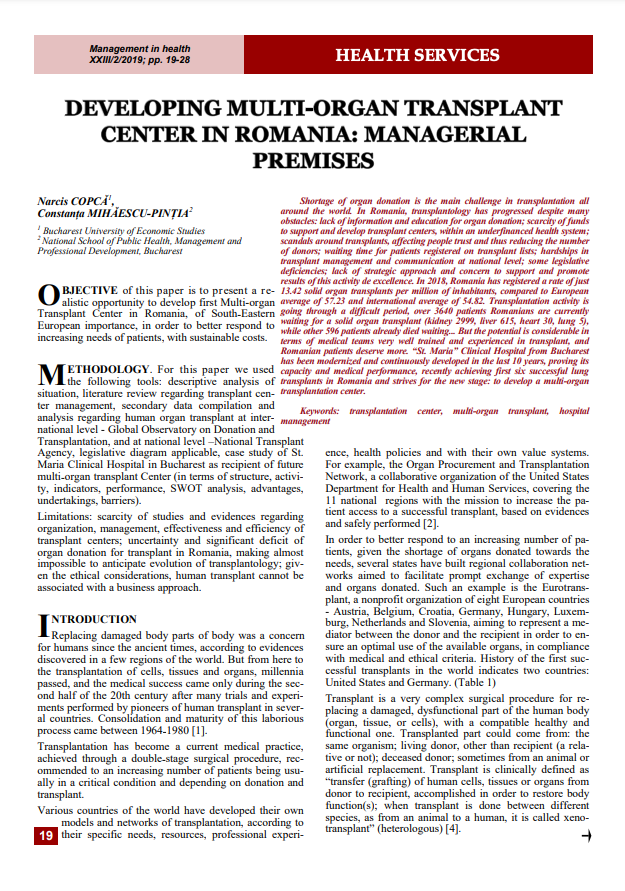Abstract
Shortage of organ donation is the main challenge in transplantation all around the world. In Romania, transplantology has progressed despite many obstacles: lack of information and education for organ donation; scarcity of funds to support and develop transplant centers, within an underfinanced health system; scandals around transplants, affecting people trust and thus reducing the number of donors; waiting time for patients registered on transplant lists; hardships in transplant management and communication at national level; some legislative deficiencies; lack of strategic approach and concern to support and promote results of this activity de excellence. In 2018, Romania has registered a rate of just 13.42 solid organ transplants per million of inhabitants, compared to European average of 57.23 and international average of 54.82. Transplantation activity is going through a difficult period, over 3640 patients Romanians are currently waiting for a solid organ transplant (kidney 2999, liver 615, heart 30, lung 5), while other 596 patients already died waiting... But the potential is considerable in terms of medical teams very well trained and experienced in transplant, and Romanian patients deserve more. “St. Maria” Clinical Hospital from Bucharest has been modernized and continuously developed in the last 10 years, proving its capacity and medical performance, recently achieving first six successful lung transplants in Romania and strives for the new stage: to develop a multi-organ transplantation center.

